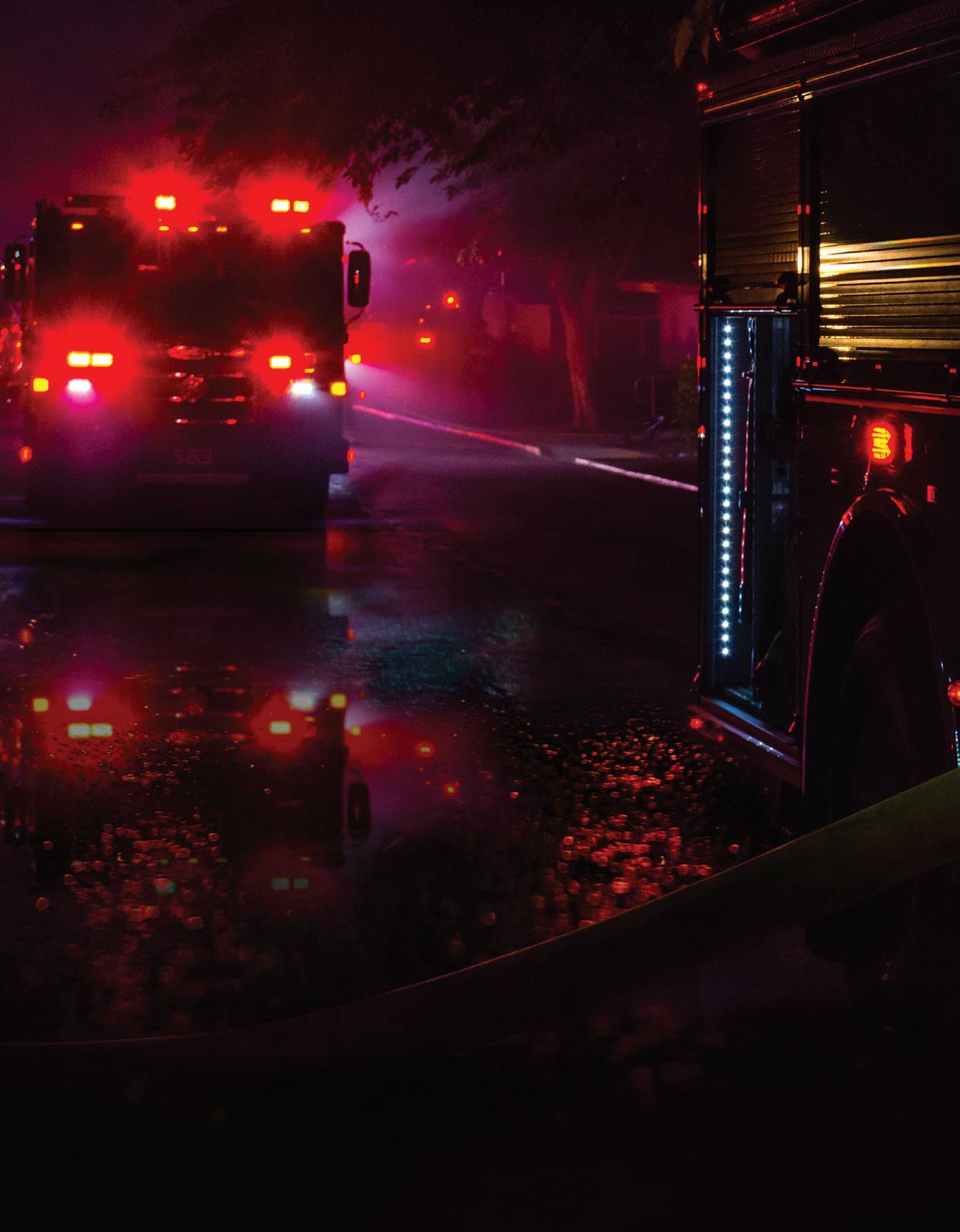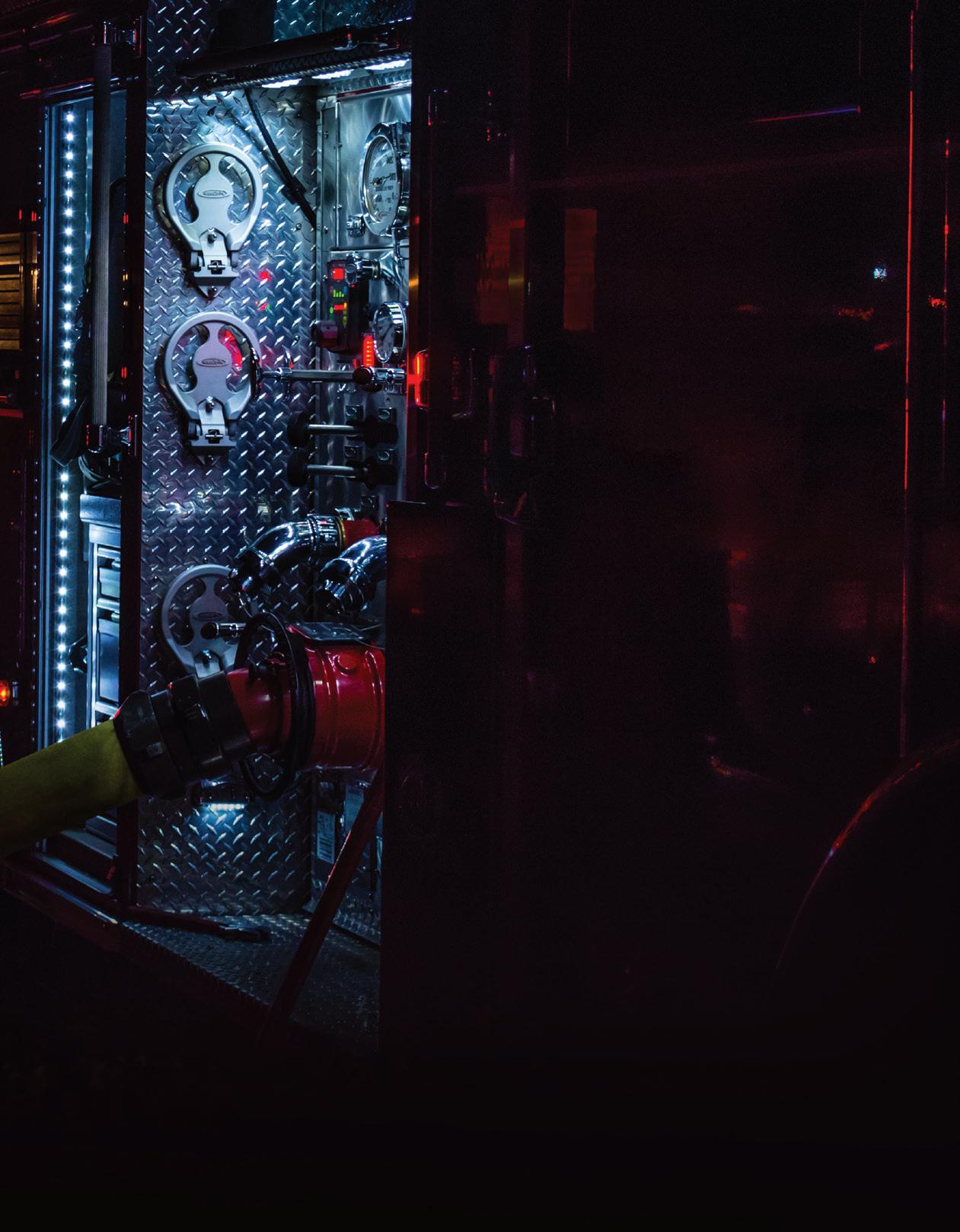
3 minute read
COPING WITH A LACK OF CALL CLOSURE… TOGETHER
Coping with a Lack of Call Closure... CALL Together Together WHAT EVER HAPPENED TO THEM?
of Call Closure... Coping with a Lack
By Erin Craw, Doctoral Student, Chapman University
What happened to that family we rescued last week? How are those parents doing, the ones who lost their child in the car accident? Will that little boy we saved ever get to live a normal life?
Firefighters are solution-oriented. They solve problems. You call 9-1-1, they respond and do everything they can to manage the scene, control the fire, and rescue victims.
BUT WHAT ABOUT THE CALLS THAT DON’T HAVE A CLEAR ENDING?
Given that first responders have an innate desire to help, moving on from a call without closure can be traumatic. But a critical aspect of the job is to keep moving. Firefighters must do their job at a call: put out the fire, perform the rescues and then move on to the next call. Often, firefighters save a person's life and then transfer care to someone else in order to get to the next call. The void created by not knowing what happened to the many people you save or care for is an occupational stressor that’s rarely talked about.
RESEARCH SHOWS THAT UNCERTAINTY CAN, IN THE LONG RUN, BE EITHER POSITIVE OR NEGATIVE DEPENDING ON HOW YOU EVALUATE THE SITUATION.
We all have different reactions to uncertainty, and not all uncertain conditions are viewed in the same way. Uncertain circumstances trigger various emotional responses. Some calls might spark optimism or hope. For instance,
you might feel that not knowing exactly what happened to the burn victim or
that driver in the car accident might allow you to hope for their full recovery, even if you don’t have
full closure. In these instances, remaining uncertain can actually allow you to move forward.
Some calls generate negative emotions, such as fear or worry, a sense of vulnerability and perhaps even helplessness. When individuals have adverse emotional responses to uncertainty, they may want additional information but lack the time or resources to followup. Some researchers refer to closure as a myth because there are so many situations in which a sense of finality isn’t possible, and uncertainty is long-lasting. The
firefighter is left with a lack of call closure that can cause emotional and mental strain.
The lack of closure from call to call is often overlooked, as the focus remains on the protocols followed and steps taken on the scene. The fast-paced unpredictability of the job can have an array of adverse effects on mental health. Lingering feelings and thoughts about whether patients are safe and well, and where they are now, are natural. Experiencing lasting negative emotions related to specific calls that lacked closure is exhausting and it’s essential for that to be recognized. It’s important to recognize that feeling upset, distracted, or distressed about calls with negative uncertainty is a normal response.

Advising a firefighter to not allow a lack of closure to have an impact is futile, because the nature of the job makes this unavoidable. There is no secret to feeling better, and closure is not always possible for every call.
and keep moving forward. Try to remain open to strategies for managing uncertainty instead of attempting to suppress or avoid negative feelings. Supportive peers can help reduce uncertainty by providing opportunities for validation, venting, and reassessing the situation.
The role of social support in coping with uncertainty related to a lack of closure is key for first responders.
Sharing your own feelings or offering to allow a peer to vent might be simple but meaningful ways to help a fellow firefighter. Instead of focusing only on that traumatic call, remember to check in consistently with peers.
This doesn’t have to involve a formal sit-down. Look for opportunities to talk with others naturally while indicating that they can come to you if they need to vent or want reassurance that their emotional responses to a lack of closure are normal.
AT THE END OF THE DAY, PERHAPS THE ONLY THING THAT YOU CAN BE SURE ABOUT IN A JOB WITH SUCH HIGH LEVELS OF UNCERTAINTY IS THE SUPPORT OF FELLOW FIREFIGHTERS. THE MORE FREQUENTLY YOU CHECK IN WITH PEERS, THE MORE NATURAL IT BECOMES.
Everyone experiences reactions to uncertainty. Acknowledging that is an important first step in managing the lack of call closure you will experience on the job.










